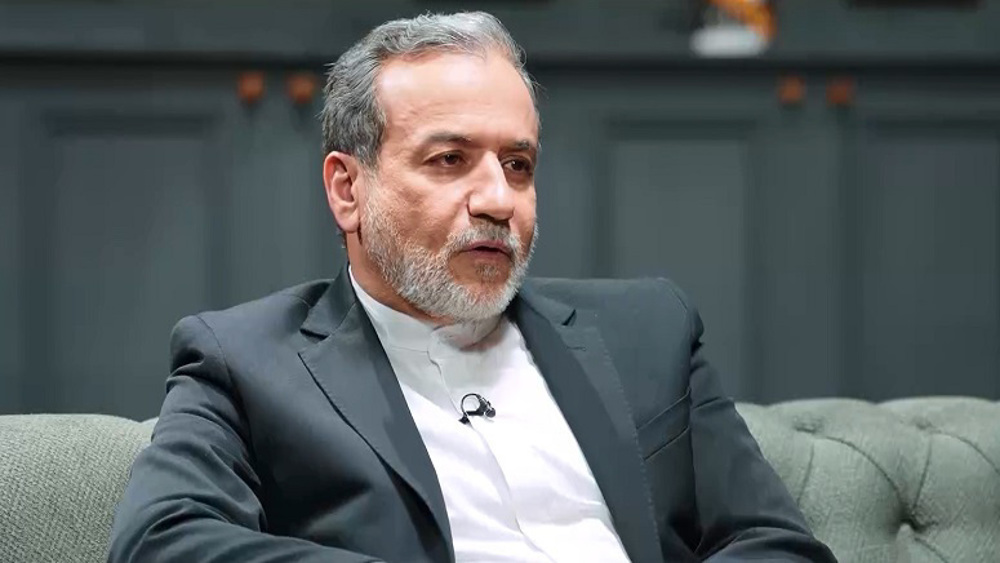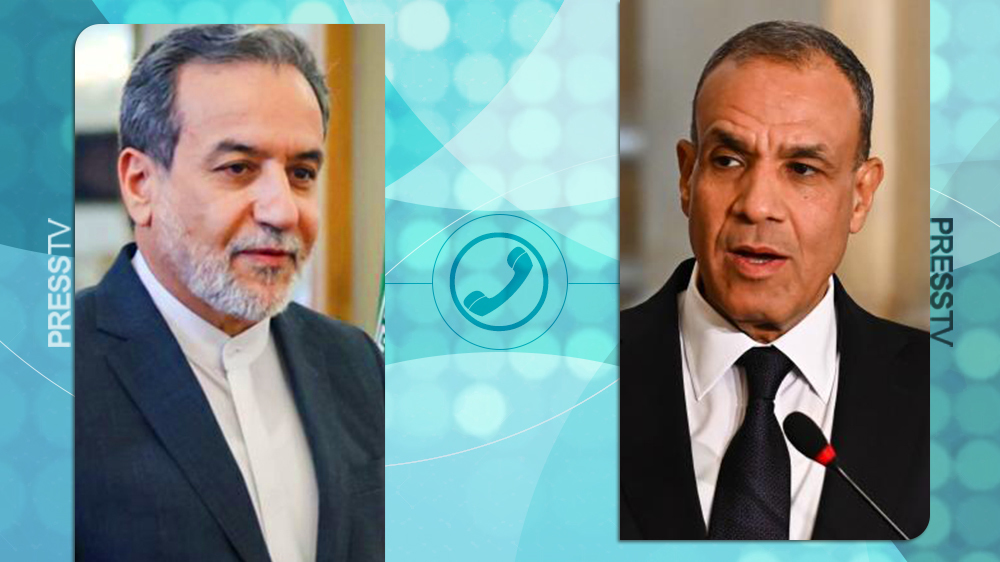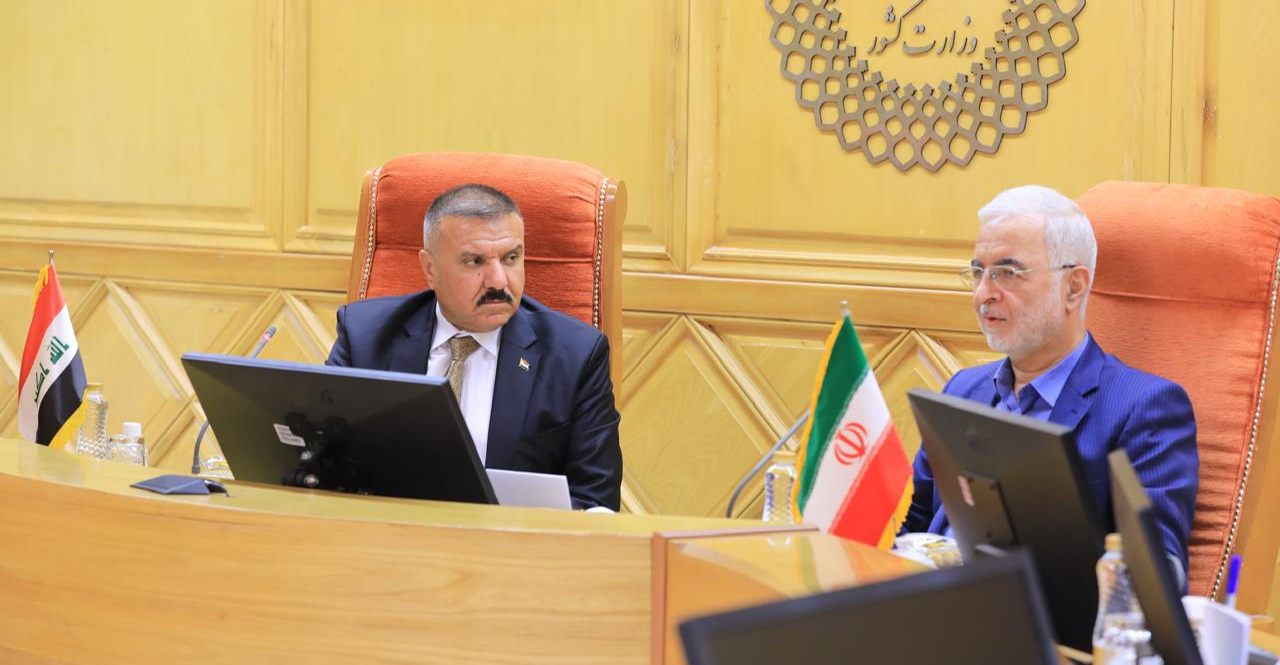Iran ‘doing just fine’ as US rejects easing oil sanctions
US State Department's special representative for Iran Brian Hook has ruled out any easing of sanctions on Iran’s crude exports, saying President Donald Trump is in “no hurry" to end the coercive measures.
Hook’s remarks in an interview with S&P Global Platts came amid speculation that the US may allow some easing of sanctions, such as allowing China to import a specified amount of Iranian crude.
"The United States is not looking to grant any sanctions relief until we have a final deal” with the Iranian government that includes Tehran’s ballistic missile program and its regional role, Hook said.
The hawkish politician said US Secretary of State Mike Pompeo’s list of 12 impossible demands, which Tehran has off-handedly rejected and many American allies have dismissed as a non-starter, "is as current today as it was in May of 2018."
The US has put itself on a dangerous collision course with Iran since reimposing sanctions on Tehran a year ago and ending waivers for some of Iran’s largest oil buyers in May.
Hook described the oil sanctions on Tehran as a clear policy success and claimed that Syria remained the lone market for Iran’s crude.
Bluff called
Data from shipping sources, however, contradicted the claims. For example, Platts’ tracking of trade flow estimated that around 200,000-250,000 barrels per day of Iranian exports went to China in September.
Those figures called into question Hook’s claims that Beijing had taken note of US sanctions which targeted six Chinese entities and their executives in September for trading with Iran.
"In the case of China, they now understand that we will sanction any sanctionable activity, especially illicit imports of Iranian crude oil," Hook said.
The US previously sanctioned China's state-owned trading company Zhuhai Zhenrong and its top executive for oil trade with Iran. The company was already under US sanctions for supplying gasoline to Iran in 2012, but it continued transporting Iranian oil because it has little overseas exposure.
On Tuesday, China’s Foreign Ministry spokesman Geng Shuang condemned new US sanctions imposed Saturday on nine people close to General Staff of Iran's Armed Forces and Leader of the Islamic Revolution Ayatollah Seyyed Ali Khamenei.
“China opposes unilateral sanctions and so-called long-arm jurisdiction. Arbitrary sanctions or threat of sanction cannot solve problems,” Geng told reporters in Beijing.
China and the United States are locked in an increasingly bitter trade war which they are currently trying to resolve.
Analysts have speculated that the US may allow China to import a specified amount of Iranian crude, in order to get some concessions from China in ongoing trade talks and prevent oil prices from rising.
US flaunts economic leverage
In his interview with Platts, Hook boasted about Washington’s economic leverage. "America's role in the global economy makes it very hard to do significant transactions outside the reach of our sanctions," he said.
He also said President Donald Trump was in "no hurry" to end sanctions on Iran. "We think that our pressure is greater than their resistance," Hook said.
"So we’re very comfortable with the actions that we have taken to date and the effect they have had to collapse support for those sectors of the Iranian economy that we have targeted,” he added.
American news publication Foreign Policy, however, cast aspersions on such claims in an article headlined, “Iran is just doing fine.”
The Trump administration kicked off what it called a “maximum pressure” campaign against Iran a year ago this week, reckoning that it would send Iran’s economy into a “death spiral,” leaving Tehran the choice to either surrender or collapse.
“Neither of these predictions came to pass,” Foreign Policy wrote. “Rather, Iran now enters its second year under maximum pressure strikingly confident in its economic stability and regional position,” it added.
According to the magazine, Iranian officials “are therefore likely to continue on their current course: Iran will go on tormenting the oil market while bolstering its non-oil economy—and it will continue expanding its nuclear program while refusing to talk with Washington.”
After the US withdrew from the 2015 nuclear deal, Iran expected that other signatories of the agreement would shore up its economy and sustain its oil exports. While the Europeans devised a financial mechanism to bypass US sanctions, they could do only so much to support trade with Iran because their companies shunned trade with the country, owing to US pressure.
Economy stabilizing
The formative years after the most hard-hitting US sanctions ever kicked in proved hard going as Iran’s economy entered a recession, inflation soared and the currency lost 60 percent of its value.
While Trump and his aides tout these statistics as evidence of the sanctions’ success, there are signs that Iran’s economy is stabilizing.
Iran’s rial has rebounded from its record lows of 190,000 to the dollar to stabilize at above 110,000 and employment continued to rise. According to the International Monetary Fund and World Bank estimates, Iran’s economy will rebound to near zero percent growth next year.
"The Iranian economy stays afloat in part because it is diversified—a trait that Washington often overlooks,” Foreign Policy said.
Iran’s service, agricultural, and non-oil industrial sectors were able to cushion the blow from the collapse of oil revenues under sanctions in 2017 during which crude oil accounted for only 43 percent of Iranian exports—as compared with 78 percent in Saudi Arabia.
“The non-oil sectors generate most of Iran’s economic output and jobs. They have proven more resilient under US sanctions than the energy sector, which relies heavily on access to the global market,” the US-based magazine said.
Sitting pretty over $100 billion of reserves which can cover any gaps, Iran’s top state officials are taking proactive steps to live out Trump’s dreams. The government plans to underwrite its operating budget without oil revenue which will shore up Iran’s economic stability at least over the next year, Foreign Policy said.
The magazine touched on the objectives of the maximum pressure campaign, saying while Washington sought to raise the cost of Iran’s regional role, Iran “now seems likely to spend its second year under US sanctions buttressing an already strong regional position.”
“Neither the Islamic Republic nor its regional activities have suffered a deathblow from the return of sanctions. But diplomacy involving the United States and Iran may have taken a fatal hit,” it said.
According to Foreign Policy, Ayatollah Khamenei “likely views Iran’s domestic and regional situation as stable, and so he will feel no need to allow high-level meetings between Iranian officials and a US administration perceived as hostile—especially during an election year in the United States.”
On Sunday, Ayatollah Khamenei underlined the need for a ban on negotiation with the US, saying it is one of the ways to block American infiltration.
"A repeated ban on negotiation with the United States is one of the important means to block their infiltration into our dear Iran," the Leader said as Iran marked the 40th anniversary of the US embassy takeover.
VIDEO | Press TV's news headlines
Iranian satellites launched into space as private sector debuts in space industry
VIDEO | Iran, Azerbaijan conduct joint maritime rescue operations
VIDEO | Yemen’s Red Sea divide: Naval forces block Israeli-linked ships in strategic ‘parting of the water’
VIDEO | Southern Gaza: Israel’s facade for famine and suffering
VIDEO | IOF hampering humanitarian aid
VIDEO | Sharmahd: Justice Done
Iran repeatedly warned Israel not to test its will: FM













 This makes it easy to access the Press TV website
This makes it easy to access the Press TV website